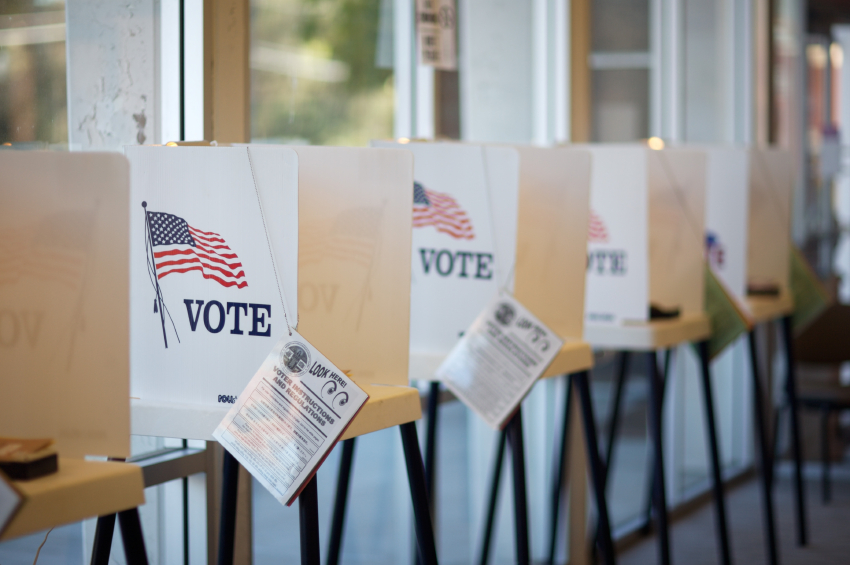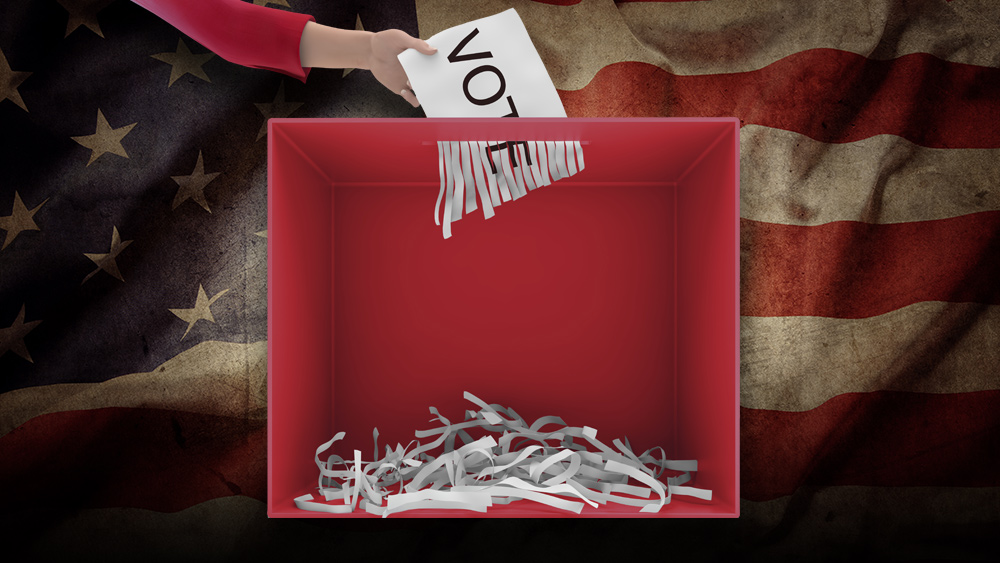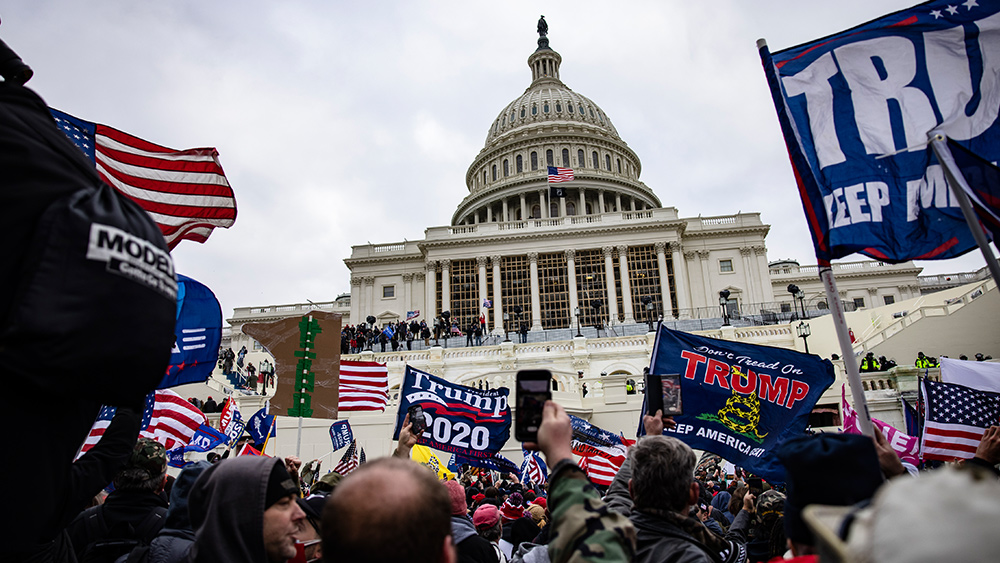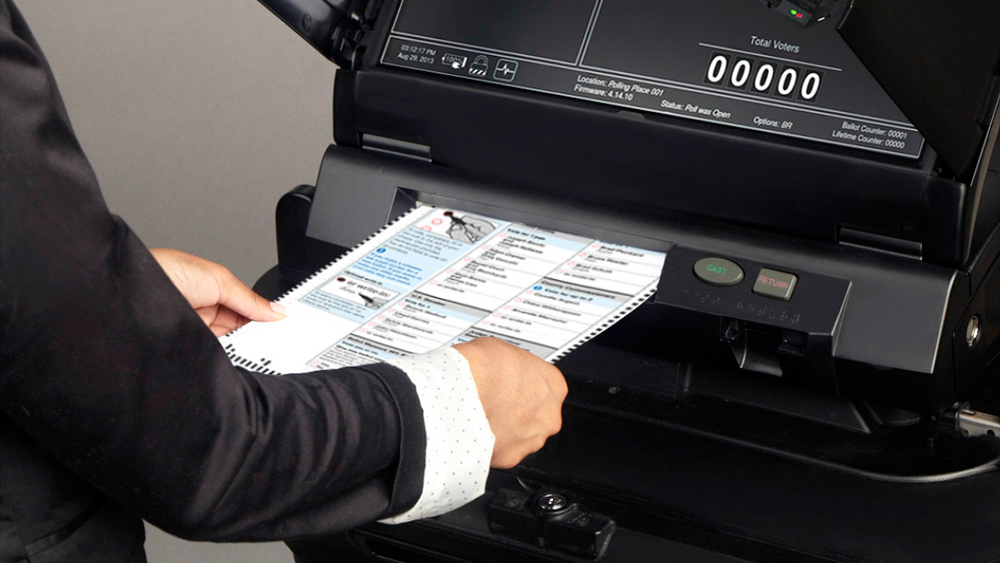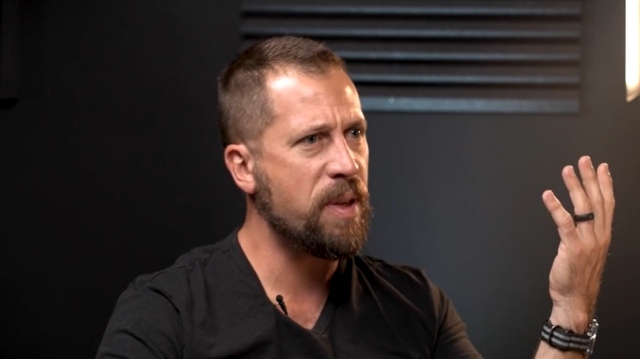AZ State rep reads Dem whistleblower’s letter to the DOJ about 2020 election fraud during election integrity hearing
12/16/2021 / By News Editors
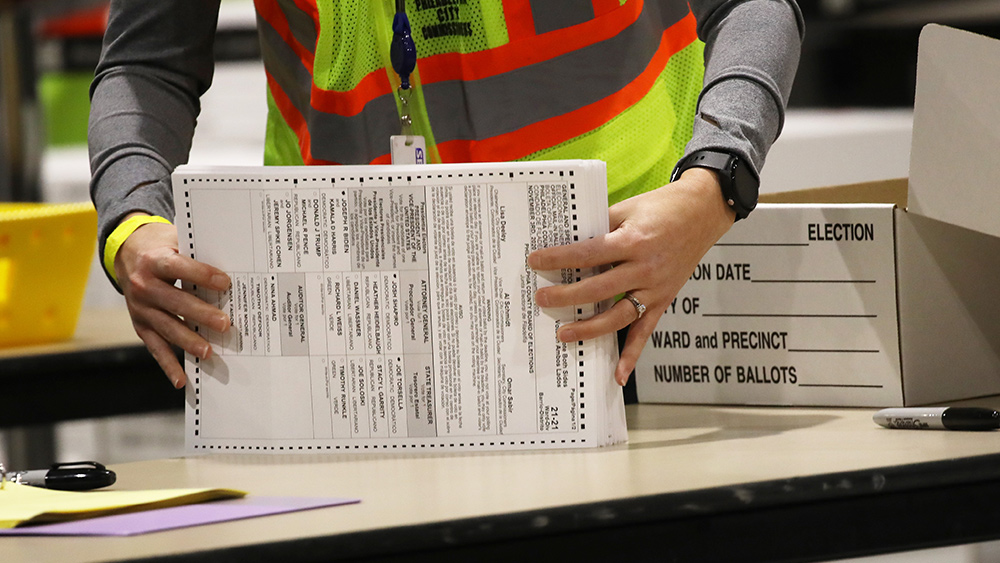
In a letter to the Department of Justice last year, an anonymous Democrat whistleblower accused fellow Democrats in Pima County, Arizona of adding approximately 35,000 votes to each of the Democrat candidates in the 2020 election.
(Article by Ryan Kelly republished from RepublicBrief.com)
This information came out Monday, during an “ad hoc” hearing in Tucson, where Arizona State House and Senate members met to discuss election integrity issues in Pima County.
During the hearing, experts provided evidence and testimony about the voting irregularities that allegedly took place during the election, including ballots from people not living where they voted, and inflated voter rolls across the Democrat-leaning county.
Arizona state Rep. Mark Finchem, who has received Trump’s endorsement for Arizona Secretary of State in 2022, read the letter. It was dated November 10, 2020, and addressed to the Criminal Division of the DOJ.
Please be advised the Pima County Recorder, located at 240 N. Stone Avenue in Tucson, Arizona, 85701 in Pima County, Arizona, and the Democrat Party added fraud votes. In the initial count of the vote by mail (VBM) totals released at 8 pm on November 3, 2020, There are approximately 35,000 fraud votes added to each Democrat candidates’ vote totals. Candidates impacted include County, State, and Federal Election candidates. Through the utilization of the automated ballot count machines in Pima County Elections, My understanding is that 35,000 was embedded into each Democrat candidates’ total votes. Below are the meeting notes.
In a meeting I was invited to by the Democrat party in Pima County, Arizona on September 10, 2020, no phones or recording devices were allowed. A presentation was given including detailed plans to embed 35,000 votes in a spread configured distribution to each Democrat candidate’s vote totals.
When I asked, “How in the world would 35,000 votes be kept hidden, or from being discovered?” It was stated that spread distribution will be embedded across the total registered vote range and will not exceed the registered voter count. And the 35,000 was determined allowable for Pima County based on our county registered voter count.
It was also stated total voter turnout versus total registered voters determined how many votes we can embed. The embedding will also adjust based on voter turnout. Because the embedded votes are distributed sporadically, all embedded votes will not be found if audited because embeds are in groups of approximately 1,000. This is so the County Recorder can declare an oversight issue or error, as a group of 1,000 is a normal and acceptable error.
Maricopa County’s embed totals will be substantially larger than Pima, due to embeds being calculated based on the total number of registered voters. When I asked, “Has this ever been tested, and how do we know it works?” the response was, yes, this has been tested and has shown significant success in Arizona judicial retention elections, since 2014. Even undetectable in post audits because no candidate will spend the kind of funds needed to audit and contact voters to verify votes and the full potential of the total registered voters, which is more than 500,000 registered voters. This year our Secretary of State has removed precinct level detail from election night releases, so candidates can’t see precinct over-votes.
This is what I have from this meeting. Just thought I’d report this. Not sure if you can do anything since I was unable to have a recording device at this meeting. Thank You.’
The whistleblower reportedly said he/she wished to remain anonymous and not be included any investigation.
Finchem said lawmakers were copied on the email, and over the ensuing months, they executed a “very quiet, but fruitful investigation.”
He also said that his team was able to verify that the IP address of the computer that sent the email is in Tucson, Arizona, but unfortunately, they wee not able to verify the identity of the whistleblower. Joe Biden’s DOJ reportedly refuses to investigate the allegations.
During the hearing, election experts described other potential election shenanigans in Pima County.
For instance, in the small town of Sells, Arizona, 1,375 residents were determined to be of “voting age.” However, 2,762 people were registered to vote in the town – more than double the voting age population.
Topawa, Arizona
Voting Age Population: 182
Registered "Voters": 288
158% Registration Rate
With single locations having 173
registered "voters" pic.twitter.com/N7j8KrITEO— Liz Harrington (@realLizUSA) December 13, 2021
The same thing happened in Topawa, another small town in Pima County, where 182 people were considered to be of “voting age” in the town of roughly 400 residents. Somehow, 288 people were reported as registered voters.
Topawa, Arizona
Voting Age Population: 182
Registered "Voters": 288
158% Registration Rate
With single locations having 173
registered "voters" pic.twitter.com/N7j8KrITEO— Liz Harrington (@realLizUSA) December 13, 2021
Pima County election canvassers also discovered that out of 172 homes in Pima County, 62 early ballots were sent to the elections department from an address where the “voter” did not live, an error rate of 52 percent.
WOW.
Canvass of 172 homes in Pima County found 62 early ballots where voter is not a resident
45 PERCENT were potentially fraudulent
And only 52% of houses responded pic.twitter.com/9HlchzmKjS
— Liz Harrington (@realLizUSA) December 13, 2021
A college fraternity house was also found to have 27 registered voters with an average age of 45 years old.
WOW.
Canvass of 172 homes in Pima County found 62 early ballots where voter is not a resident
45 PERCENT were potentially fraudulent
And only 52% of houses responded pic.twitter.com/9HlchzmKjS
— Liz Harrington (@realLizUSA) December 13, 2021
Monday’s hearing occurred following an election analysis from October reporting that thousands of Pima County’s mail-in votes could be fraudulent.
Dr. Shiva Ayyadurai, a systems scientist involved in the state’s forensic audit, reported two Pima County precincts had over 100 percent turnout with mail-in ballots in 2020, an impossible phenomenon.
Pima County’s mail-in return rate was 15 percent higher than the 71 percent national average, and 19 percent higher than all of the other counties in Arizona.
Precincts that reported a 92 percent mail-in return rate or higher represented 264,000 votes. If just two percent of those were fictitious in favor of Joe Biden, then President Trump would win Arizona.
Pima County’s hearing also comes amid the audit of Maricopa County’s election results, which reported more than 57,000 ballots having irregularities.
Finchem has called for a forensic audit of the entire state’s election results. “The overriding thing that folks have to remember: elections belong to the people, they do not belong to the government,” he said in an interview with Real America’s Voice before the hearing.
Dr. Kelli Ward, Chairwoman of the Arizona Republican Party, gave a brief synopsis of the discrepancies found in the Southern Arizona county.
President Trump said in a statement that the analysis of the 2020 election in Pima County, revealing “staggering anomalies and fictitious votes” proves that the election was rigged and stolen from the Republicans.
https://twitter.com/RSBNetwork/status/1449109730643824641?ref_src=twsrc%5Etfw%7Ctwcamp%5Etweetembed%7Ctwterm%5E1449109730643824641%7Ctwgr%5E%7Ctwcon%5Es1_&ref_url=http%3A%2F%2Frepublicbrief.com%2Faz-state-rep-reads-dem-whistleblowers-letter-to-the-doj-about-2020-election-fraud-during-election-integrity-hearing%2F
Read more at: RepublicBrief.com
Submit a correction >>
Tagged Under:
2020 elections, Arizona, big government, conspiracy, deception, democrats, DOJ, Donald Trump, election, fake ballots, politics, rigged, vote fraud, Whistleblower
This article may contain statements that reflect the opinion of the author
RECENT NEWS & ARTICLES
Trump.News is a fact-based public education website published by Trump News Features, LLC.
All content copyright © 2018 by Trump News Features, LLC.
Contact Us with Tips or Corrections
All trademarks, registered trademarks and servicemarks mentioned on this site are the property of their respective owners.


